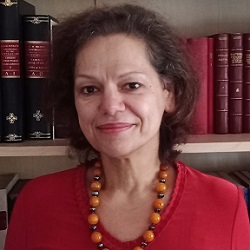Multilingualism and language assessment of English as a second language: a view from India
Ianthi M. Tsimpli
University of Cambridge
|
Reading comprehension is a challenging skill for monolingual and bilingual children from disadvantaged socioeconomic backgrounds. In bilingual children, reading in a second language may lead to more difficulties since proficiency in the L2 may not be sufficiently high for good levels of comprehension and oral language skills may also be developing (Gough & Turner, 1986). A discrepancy in multilingual learners is also found between oral and written language skills in that multilingualism is often an oral competency while literacy is mostly developed in one language.
Based on a recent study in English-medium (EMI) government schools of primary level in India, reading comprehension was found to be more of a challenge than listening comprehension in children from diverse language backgrounds (Tsimpli et al, 2020). As English input is not provided to these learners outside school and home literacy support is minimal even in the home language(s), we carried out an educational intervention to improve reading comprehension. To this end, we used multilingual resources, i.e. regional languages alongside English, to improve inferential abilities through oral language use in peer-group activities. Our findings reveal that the use of the regional language in the form of code-mixing (mixing English with the regional language for better communication and learning outcomes) is natural and useful for underprivileged children whose exposure to English is restricted to school hours only. All assessments of the intervention outcomes however, were unilingually English.
In follow-up projects, we expanded the multilingual approach to the development of assessment tools for both classroom-based and individual assessment of reading comprehension skills, which better reflect the multilingual pedagogical practices of the teaching and learning approach implemented during the intervention. I will present the findings of this research with a view to advocating for a flexible, dynamic, equity-driven approach to second language assessment.
References
Gough, P. & Tunmer, W. (1986). Decoding, reading, and reading disability. Remedial and Special Education, 7, 6–10.
Tsimpli, I.M., A. Balasubramanian, T. Marinis, M. Panda, L. Mukhopadhyay, S. Alladi & J. Treffers-Daller (2020) Multilingualism and Multiliteracy: Raising Learning Outcomes in Challenging Contexts in Primary Schools across India. Project final report.
